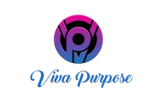Deciding whether to self-publish your book or not can be a daunting task. With the rise of self-publishing platforms, more and more authors are choosing to take control of their publishing journey. However, it's important to consider the pros and cons of self-publishing before making a decision.
Self-publishing offers a lot of freedom and control over the publishing process. You get to make all the decisions, from the cover design to the marketing strategy. However, with great power comes great responsibility. Self-publishing also means you have to take care of everything yourself, from editing to distribution. This can be overwhelming, especially for first-time authors.
In this article, we'll explore the pros and cons of self-publishing and help you decide whether it's the right choice for you. We'll look at factors such as creative control, royalties, marketing, and distribution. By the end of this article, you'll have a better understanding of whether self-publishing is the right path for you to take.
Advantages of Self-Publishing
If you are an author who is considering self-publishing, there are several advantages that you may want to consider. In this section, we will discuss some of the most significant benefits of self-publishing.
Control Over the Publishing Process
One of the most significant advantages of self-publishing is that you have complete control over the publishing process. You can decide on the cover design, formatting, and editing. You can also choose the distribution channels, marketing strategies, and pricing of your book. This level of control allows you to create a book that truly reflects your vision and style.
Higher Royalties
Another advantage of self-publishing is the potential for higher royalties. Traditional publishers typically pay authors 5-20% of the book's selling price after deducting the advance payment. In contrast, self-publishing allows you to keep a higher percentage of the profits. You can earn up to 70% of the book's selling price on some platforms, such as Amazon.
Faster Time to Market
Self-publishing is usually a much quicker way to get your book to market than traditional publishing. There are no gatekeepers who get to decide whether you can publish your book or not. You can publish your book as soon as it is ready, without having to wait for a publisher's approval. This means that you can get your book to readers faster and start earning royalties sooner.
Overall, self-publishing offers authors a lot of advantages, including complete control over the publishing process, higher royalties, and faster time to market. While there are also some challenges to self-publishing, such as the need to pay for editing, formatting, and marketing, many authors find that the benefits outweigh the costs.
Disadvantages of Self-Publishing
If you're considering self-publishing your book, it's important to be aware of the potential downsides. Here are some of the most significant disadvantages:
No Guarantee of Success
Self-publishing doesn't come with any guarantee of success. While you may have complete creative control over the content and cover design, there's no guarantee that your book will sell. Without the backing of a traditional publisher, you'll need to work hard to build an audience and promote your book.
Limited Distribution and Marketing
When you self-publish, you're responsible for marketing and distributing your book. This can be a challenge, especially if you don't have experience in these areas. You'll need to create a marketing plan, build an author platform, and figure out how to get your book into the hands of readers. You may also find it difficult to get your book into bookstores and other traditional retail outlets.
More Work and Responsibility
Self-publishing requires a lot of work and responsibility. You'll need to edit, format, and design your book, which can be time-consuming and challenging. You'll also need to handle all aspects of production, including printing, shipping, and customer service. This can be overwhelming, especially if you're not familiar with the publishing industry.
Overall, self-publishing can be a great option for some authors, but it's important to be aware of the potential drawbacks. If you're willing to put in the work and take on the responsibility, self-publishing can be a rewarding and fulfilling experience.
Factors to Consider
Before deciding to self-publish your book, there are several factors that you should consider. These factors include your goals and expectations, your budget and resources, and your skills and expertise.
Your Goals and Expectations
One of the most important factors to consider when self-publishing your book is your goals and expectations. Ask yourself what you hope to achieve by self-publishing your book. Are you looking to make a profit, or are you more interested in sharing your story with the world? Do you want to establish yourself as an expert in your field, or are you simply looking to express your creativity?
It's important to have a clear understanding of your goals and expectations before you begin the self-publishing process. This will help you make informed decisions about everything from the design of your book cover to the marketing strategies you use to promote your book.
Your Budget and Resources
Another important factor to consider when self-publishing your book is your budget and resources. Self-publishing can be expensive, and it's important to have a realistic understanding of the costs involved before you begin.
Consider the costs of editing, formatting, cover design, and marketing. Do you have the financial resources to cover these costs, or will you need to seek out alternative funding sources?
It's also important to consider your time and energy resources. Self-publishing can be a time-consuming process, and it's important to have the necessary time and energy to devote to the project.
Your Skills and Expertise
Finally, it's important to consider your skills and expertise when self-publishing your book. Do you have the necessary writing and editing skills to produce a high-quality book? Do you have experience with design and formatting?
If you don't have these skills, it's important to consider hiring professionals to help you with the process. While this will increase your costs, it can also help ensure that your book is of the highest quality.
Alternatives to Self-Publishing
Traditional Publishing
Traditional publishing involves submitting your manuscript to a publishing house, which will then handle the editing, design, printing, and distribution of your book. If you're lucky enough to get accepted by a traditional publisher, you'll have access to their resources and expertise, and you'll likely receive an advance and royalties on your book sales. However, traditional publishing is highly competitive, and it can take months or even years to get a response from a publisher. Additionally, you'll have less control over the final product and may have to give up some creative freedom.
Hybrid Publishing
Hybrid publishing combines elements of traditional and self-publishing. With hybrid publishing, you'll work with a publisher who will assist with editing, design, and distribution, but you'll also have more control over the final product and retain the rights to your book. Hybrid publishing can be a good option if you want some assistance with the publishing process but still want to maintain creative control. However, be cautious of hybrid publishers who may charge high fees or make unrealistic promises.
Vanity Publishing
Vanity publishing, also known as subsidy publishing, involves paying a publisher to produce and distribute your book. While vanity publishers may offer services such as editing and design, they often charge high fees and may not provide the same level of quality as traditional or hybrid publishers. Additionally, vanity publishers may not have the same distribution channels as traditional publishers, which can make it difficult to get your book into bookstores or libraries. Overall, it's important to research and consider all of your options before deciding how to publish your book. Each publishing option has its own advantages and disadvantages, and what works for one author may not work for another.
Conclusion
After considering the pros and cons of self-publishing, it is clear that this path is not for everyone. However, for those who are willing to put in the time, effort, and money, self-publishing can be a viable option.
One major advantage of self-publishing is the control it gives authors over their work. They have the final say in all aspects of the publishing process, from the cover design to the marketing strategy. Additionally, self-publishing allows authors to keep a larger percentage of their royalties.
However, self-publishing also comes with its own set of challenges. Authors must be prepared to take on the responsibilities of a publisher, including editing, formatting, and promoting their book. They must also be willing to invest their own money upfront, as self-publishing can be expensive.
Ultimately, the decision to self-publish should be based on individual goals and circumstances. Authors who are willing to put in the work and take on the risks may find self-publishing to be a rewarding experience. However, those who prefer a more traditional route or are not willing to invest the time and money may be better off pursuing traditional publishing.




